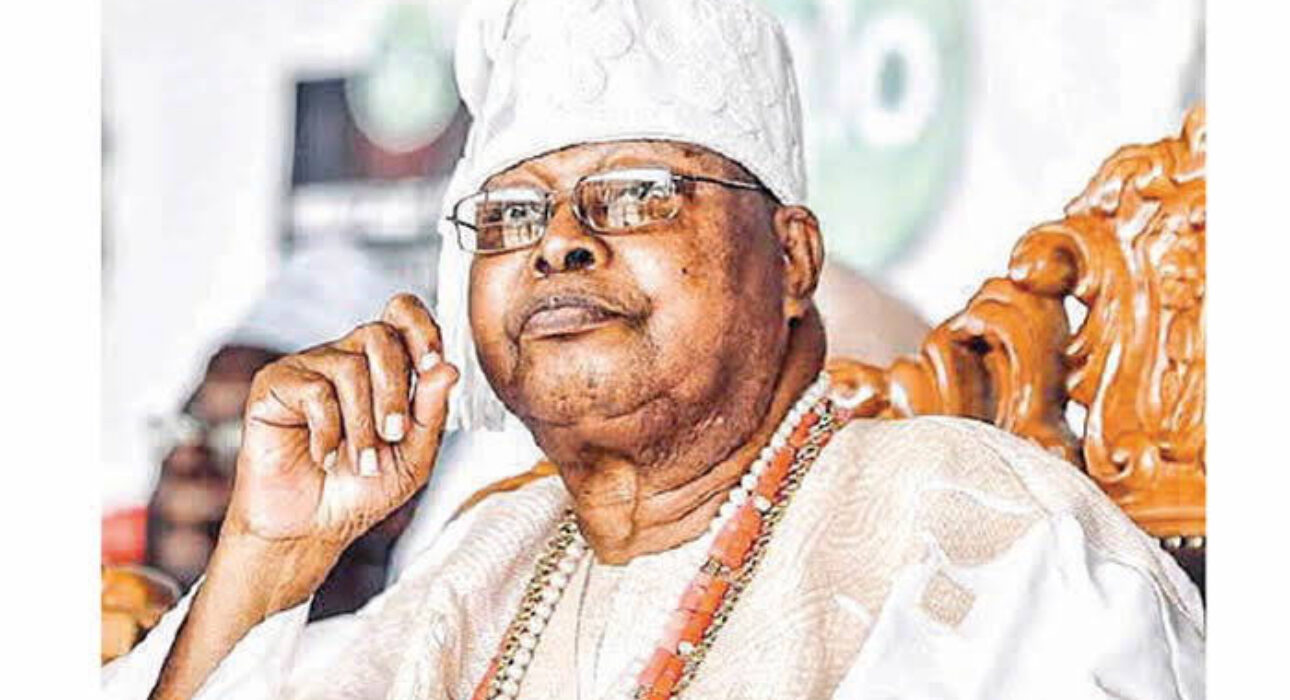Awujale of Ijebuland, Oba Sikiru Adetona, Laid to Rest in Ijebu Ode Amid Tributes, Tradition

Oba Sikiru Kayode Adetona, the revered Awujale and Paramount Ruler of Ijebuland, was laid to rest on Monday, July 14, 2025, at his Ogbagba Court residence in Igbeba, Ijebu Ode.
The funeral followed Islamic rites, in accordance with the late monarch’s personal faith, and marked the final chapter of a reign that spanned over six decades and helped shape the cultural, social, and political identity of Ijebuland and beyond.
The 91-year-old monarch, who passed away peacefully on Sunday, July 13, died just hours after the death of his close associate, former President Muhammadu Buhari, a development that deepened national mourning and drew expressions of shock and grief from all corners of the country.
His passing signaled the end of a remarkable era—Oba Adetona had been installed as Awujale on April 2, 1960, shortly before Nigeria’s independence, making him one of the longest-reigning traditional rulers in Africa.
His burial was conducted swiftly and with solemn dignity in line with both Islamic tradition and Ogun State’s amended traditional rulers’ law, which the Awujale himself had championed during his lifetime. That law, passed in 2021, guaranteed that monarchs in the state could be buried according to their personal religious beliefs, rather than being subjected to strictly traditional or cultural rites.
It was a fitting final act of agency for a king who had spent much of his reign advocating for modern reforms within the traditional institution.
Family members, chiefs, political dignitaries, and thousands of mourners gathered in Ijebu Ode to witness the burial of a monarch widely regarded as both a guardian of Ijebu customs and a reformer who navigated his people into the modern age.
The Ogun State government was heavily represented, with the Deputy Governor and senior officials in attendance. Messages of condolence flowed in from across the country, including tributes from traditional councils, political leaders, and religious organizations.
Oba Adetona’s legacy includes his successful transformation of the Ojude Oba Festival into an internationally celebrated cultural event, his defense of traditional leadership rights, and his enduring influence as a symbol of continuity in Nigerian public life. Despite his long reign, he remained vocal in public affairs, earning a reputation as a fearless commentator on national governance and societal values.
The town of Ijebu Ode was enveloped in a quiet reverence on the day of his burial, with shops closed, cultural flags flown at half-mast, and residents pouring into the streets to honor a king who had been a fixture of their lives for generations. His palace gates were flanked by sympathizers, some in tears, many offering prayers, and others simply present to witness history.
As Nigeria bids farewell to Oba Sikiru Adetona, the void he leaves behind is felt not only by the Ijebu people but across the country. His reign was a bridge between pre-independence Nigeria and the modern republic—a testament to dignity, adaptability, and principled leadership. The succession process for the throne is expected to follow traditional procedures in the coming weeks, but for now, the nation pauses to mourn a monarch who earned both respect and reverence in equal measure.









